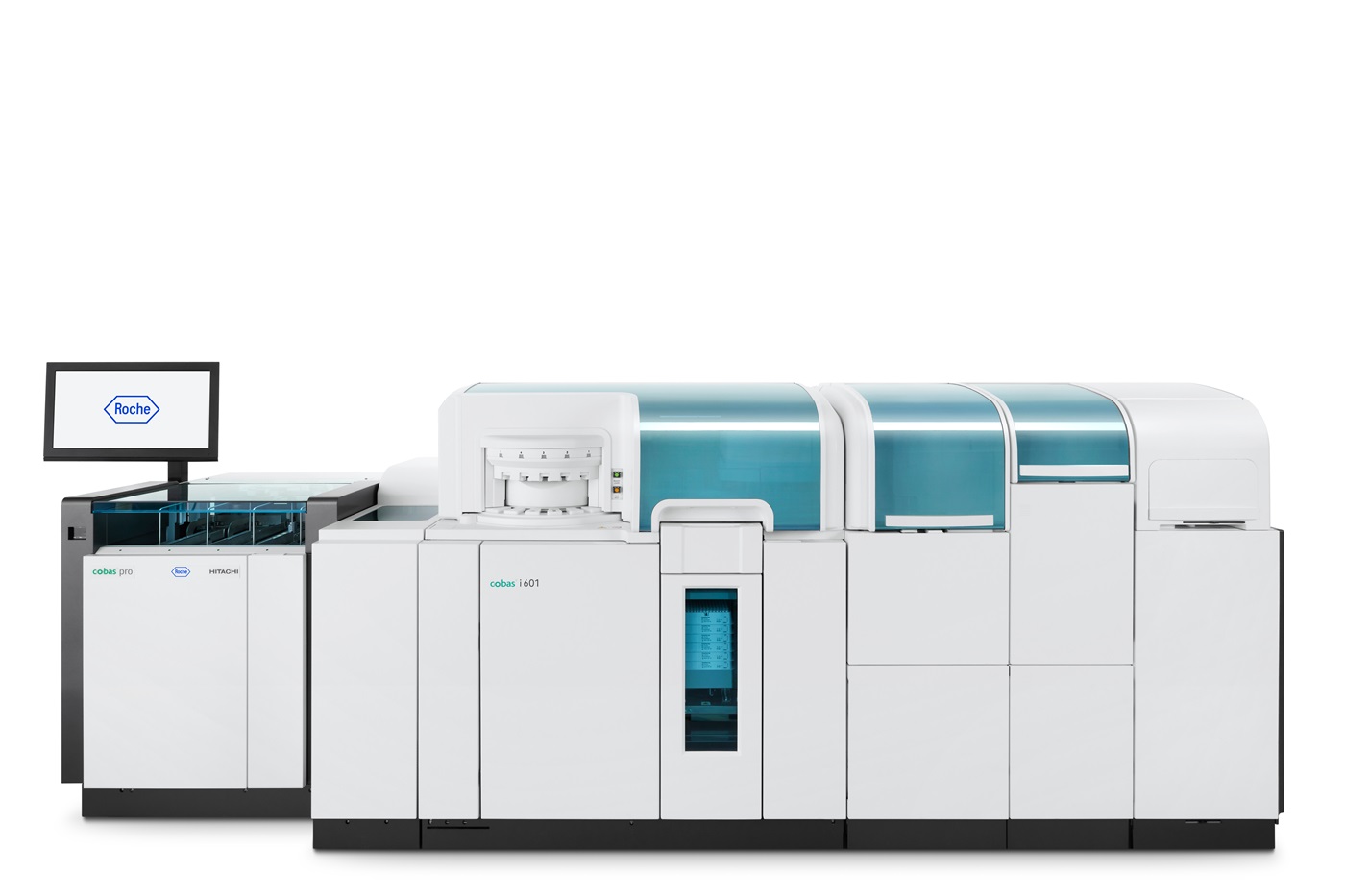Enter a new dimension in mass spectrometry with an automated and integrated solution
Revolutionizing clinical mass spectrometry
At Roche, we believe in the power of innovation to advance and improve diagnostics. We have a proven track record of pioneering lab solutions, and we are determined in our commitment to continuous innovation.
A changing healthcare landscape means labs are under pressure to manage an increasingly high number of samples faster, while also ensuring the highest levels of accuracy and timely results. Mass spectrometry testing, considered the gold standard for some clinical situations, offers clinicians information at a greater scale than ever before, at even faster rates.1 However, due to the complex nature of mass spectrometry technology, it is underutilized in the clinical core lab.
To address unmet needs and provide answers to the current challenges, we have invested in developing an end-to-end solution for clinical mass spectrometry testing. The cobas® i 601 analytical unit is designed to be a fully automated, integrated, standardized, and easy-to-use solution with high throughput and random access. It works in combination with our cobas® pro integrated solutions. The Ionify® reagent line complements the existing serum work area (SWA) menu, while navify® digital solutions provide full transparency and control of your integrated laboratory operations.
By streamlining and standardizing the laboratory workflows we can help speed up patient flow and generate consistency of patients results. This can help reduce pressure on labs.
Supporting enhanced patient care through expanded services
Standard testing methods like immunochemistry and clinical chemistry can have limitations.2 Mass spectrometry technology can offer better analytical sensitivity, specificity, and accuracy in specific patient samples, while being less impacted by matrix effects, interferences, or cross-reactivity issues.3,4,5 This makes mass spectrometry an ideal complement to current diagnostic methods, expanding lab services and adding clinical value for new patient cohorts and cases.6
Fully automated clinical mass spectrometry solution
Despite its benefits, 66% of current users find mass spectrometry unsuitable for routine testing due to the high operational complexity, lack of integration, limited automation and standardization, and the requirement for expert training or education.7 At Roche, we are dedicated to revolutionizing clinical mass spectrometry testing to provide broader access to new diagnostic capabilities for the benefit of patients. Our goal is to make clinical mass spectrometry testing as easy as current clinical chemistry or immunoassay testing.
Featured products
Educational insights: What needs to be done to increase consistency of patient results
Join Prof. Dr. Christa M. Cobbaert, Head of the department of Clinical Chemistry and Laboratory Medicine, University Medical Center, Leiden, Netherlands, as she answers key questions on how mass spectrometry is influencing clinical diagnostics. Hear her insights on what needs to be done to increase the consistency of patient results, and what impact this might have on improving patient care now, and in the future.
Educational insights: When is mass spectrometry the preferable diagnostic method and more
Join Prof. Dr. Esa Hämäläinen, Professor Emeritus in Clinical Chemistry, University of Eastern Finland, as he answers key questions on how mass spectrometry is influencing clinical diagnostics. Hear his insights on when mass spectrometry is a preferable method, and how a random access mass spectrometry solution with high throughput might impact lab workflow.

White paper: Fuelling a new era of innovation in mass spectrometry
Looking at the challenges of broad access mass spectrometry diagnostics today, and outlining a vision for the future.

Building the clinical lab of the future with complementing technologies
Integrating automated mass spectrometry in the lab of the future will broaden diagnostics offerings as it complements existing technologies while enabling more precise results and improved patient care.
References
- Rankin-Turner S and Heaney LM. Mass spectrometry in the clinical laboratory. A short journey through the contribution to the scientific literature by CCLM. Clin Chem Lab Med. 2023; 61(5): 873-879.
- Vogeser V and Zhang YV. Understanding the strategic landscape surrounding the implementation of mass spectrometry in the clinical laboratory: A SWOT analysis. Clin Mass Spectrom. 2018 Aug;9:1-6.
- D'Aurizio F and Cantù M. Clinical endocrinology and hormones quantitation: the increasing role of mass spectrometry. Minerva Endocrinol. 2018 Sep;43:261-284.
- Keevil BG. LC-MS/MS the First 20 years: A Personal View. Annals of Clinical Biochemistry. 2022 Jan;59(1):3–6.
- Van der Gugten JG. Tandem mass spectrometry in the clinical laboratory: A tutorial overview. Clin Mass Spectrom. 2020 Jan;15:36–43.
- Thomas SN et al. Liquid chromatography-tandem mass spectrometry for clinical diagnostics. Nat Rev Methods Primers. 2022 Dec 8;2(1):96.
- Business potential of clinical Mass Spectrometry, usage of CMS in Seven target countries. Study number 40846131.


